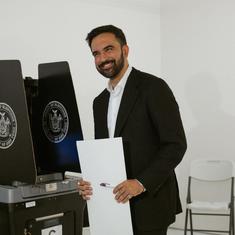Mizoram to give identity cards to nearly 16,000 Myanmar refugees, say reports
The state home department secretary said that the process had already started, but was hampered by the coronavirus pandemic.

The Mizoram government will provide identity cards to refugees from Myanmar who have taken shelter in the state since a military coup in their country last February, The Times of India reported on Sunday.
Mizoram Home Secretary Vanlalngaihsaka told The Times of India that the government has already started the process of giving identity cards to nearly 16,000 refugees, but the drive has slowed down due to the coronavirus pandemic.
Mizoram shares a 510 kilometres-long border with Myanmar.
In August, the Union government had told Rajya Sabha that more than 8,400 Myanmarese refugees had crossed over into India since the coup. Of them, 5,796 refugees had been sent back, the Centre had said.
However, authorities in Mizoram have put the number of Myanmarese refugees significantly higher. In June itself, the state’s police had said that 9,247 Myanmarese citizens took refuge in Mizoram. They included more than 20 Myanmarese legislators, a police officer had told PTI in June.
Meanwhile, on Saturday, an unidentified government official told The Economic Times that it was a challenging work to provide the ID cards as the refugees were dispersed at several sites, and many of them were staying with their relatives.
Myanmar coup
The military coup in Myanmar on February 1 last year followed the landslide victory of the National League for Democracy and Aung San Suu Kyi in the national elections in November 2020. The military-backed Union Solidarity and Development Party performed poorly in its key strongholds.
The country’s military refused to accept the government, citing unsubstantiated allegations of fraud. It was also announced that the coup was a result of the government’s failure to delay the November elections despite the outbreak of Covid-19.
Security forces in Myanmar cracked down heavily on those who agitated against the coup, drawing global criticism.
In December, Suu Kyi was jailed sentenced to two years imprisonment for provoking dissent against the military. The next month, she was sentenced to four more years in jail after the civilian leader was found guilty of illegally possessing walkie-talkies and breaching Covid-19 restrictions.









